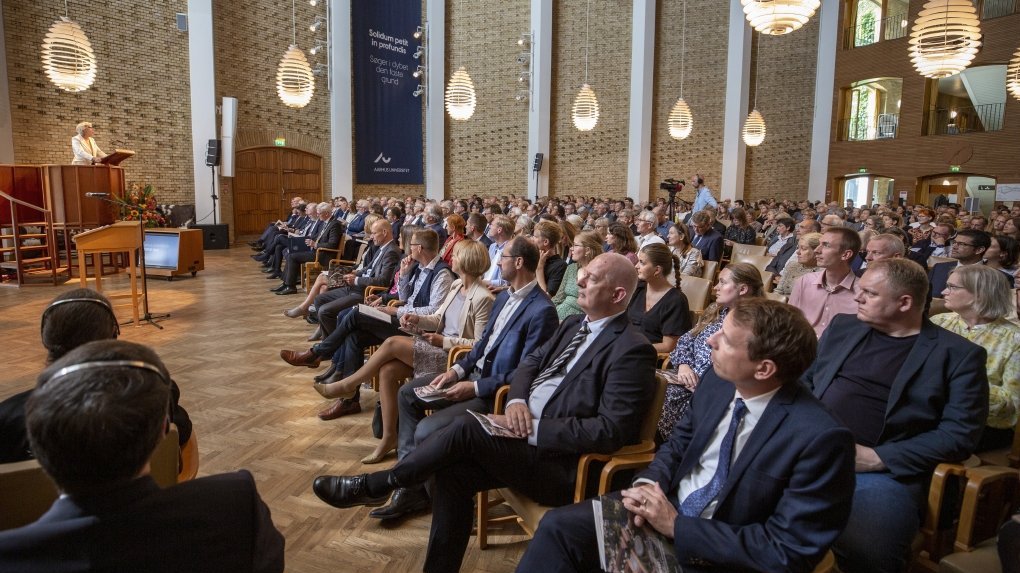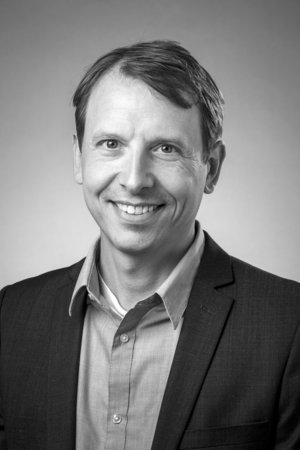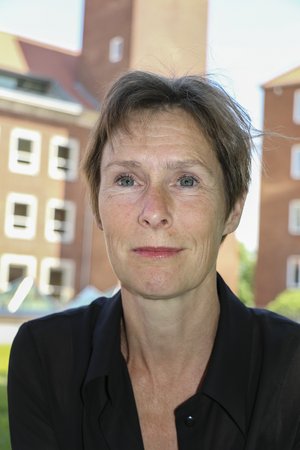The Prize was awarded annually until 2022 and has since been replaced by The Else Kai Sass Award.


Professor Michael Bang Petersen’s research has been published in leading international journals, and many of his publications have several hundred citations. But for the recipient of Aarhus University Anniversary Foundation Research Communication Prize 2022, the highest priority is making a difference in society.
“Research exists to make us all smarter. In order for it to do so, then we researchers have a responsibility to communicate our knowledge. No matter whether the audience is made up of fellow researchers, practitioners or the general public. My research was relevant in order to understand how citizens react during a crisis like the Covid pandemic, so I felt a strong responsibility to make my knowledge available,” says Michael Bang Petersen, professor at the Department of Political Science.
Michael Bang Petersen’s research takes place at a crossroads between political science, psychology and biology, and it contributes interdisciplinary insight into issues such as what drives polarisation in democratic societies and how political hatred is spread on social media. And how we react in cases where someone like Putin attacks Ukraine or when a virus attacks the whole world.
100 reports to government agencies and institutions and 8 daily media appearances
During the Covid pandemic, Michael Bang Petersen headed the research project HOPE (How Democracies Cope with COVID19), which monitored the development of citizens’ behaviour and opinions in a number of Western countries as infection rates fluctuated and restrictions were imposed and repealed.
Data collection began when the first wave hit Denmark in March 2020. So did the analyses and the research communication.
“Our fundamental vision was to deliver research which could be of use here and now. Usually, research has to go through an extensive peer review process, but in this case, society had an urgent need for reliable knowledge about what we found ourselves in the midst of. That’s why I took a different approach. There’ve been a lot of dilemmas involved in collecting data and communicating results simultaneously,” says Michael Bang Petersen.
Week after week, he and his colleagues in the HOPE project generated data in real time and sent reports to the Danish government and the Danish health authorities. Michael Bang Petersen is a member of the government’s advisory group concerning Covid-19, he is ad hoc adviser to WHO Europe, he has been a member of the Danish Health Authority’s Covid-19 Advisory Board, and he has presented within the framework of the European Commission and the Nordic Council.
In total, he has delivered more than 100 reports to government agencies and institutions, citizens and media. Last year, he averaged eight appearances a day in Danish media. In addition, he has communicated his knowledge in international outlets such as CNN, BBC, Fox News, The Washington Post, The New York Times, Nature and Science.
During the Covid pandemic, Michael Bang Petersen’s own Twitter account became one of his major communication channels – more than 33,000 people and organisations follow his profile. Through his tweets, he has not only communicated his knowledge; he has also contributed to the public conversation about science.
His research communication was based on data that mirrored the situation here and now. At the same time, this data was included in papers in in some of the best academic journals, such as Proceedings of the National Academy of Sciences and Psychological Science.
“This signals that the quality of the research, and not its topicality alone, is absolutely excellent ,” as the nomination for the Research Communication Prize 2022 reads.

We can learn a lot about a society and a culture by studying children. This is a central insight in the work of Eva Gulløv, a professor with special responsibilities (MSO) at the Danish School of Education, Aarhus University, who is this year’s recipient of the Aarhus University Anniversary Foundation Research Communication Prize. However, she doesn’t see herself as an expert: she is an interpreter, and her task is to identify the received truths and dilemmas in cultures and societies.
What’s more, this year’s recipient of AU’s research communication award is sceptical of the word ‘communication’ itself.
“That makes it sound as if I’m an intermediary in relation to a truth that is to be conveyed to others. But in my view, it’s not a linear process; something happens in the transaction. And the conclusion is the result of a collaboration,” she said.
She understands herself as an interpreter of societies and people in specific cultures. Most often the people she collaborates with are social educators or teachers, in addition to professionals in municipal government. And instead of assuming the role of an expert and pronouncing conclusions, she sees her task as presenting analyses and interpretations of connections – as well as pointing out dilemmas.
“I’m not an expert; they’re the ones who are experts in their field. My task is to present dilemmas and ? as they appear from different perspectives, on the background of my analyses and interpretations. I identify forces and assumptions that can be difficult to capture if you’re a stakeholder in a particular situation,” she explained, and went on to add that her goal was to clarify the different perspectives, exploring how they harmonise and clash as a prelude to discussion.
Children help us understand society
Throughout her career, Gulløv has disseminated her research to academic colleagues and has written articles and books that are widely used in courses at universities and university colleges. In 2012, she published the book Civilisererende institutioner, which was co-authored with her DPU colleague Laura Gilliam. It was subsequently translated to both Norwegian and English. The topic of the book is the dominant child-rearing values in Danish schools, daycare centres and families; according to Gulløv, certain community-oriented ideals exert a powerful influence in these contexts.
Generally speaking, we can learn a lot about our society by looking at its children, Gulløv said:
“Children are an absolutely central part of a society’s continuity. After all, cultural values must be transferred from one generation to another. That’s why looking at children and the investments made in children is a really fruitful topic if you’re interested in understanding a society’s values, dominance relationships and potential transformations.”
Children in rural areas
Her most recent book, Opvækst i provinsen – om dem, der bliver, og dem, der rejser, co-authored with John Gulløv, explores how the educational system is implicated in the power imbalance between urban and rural areas, with a focus on the push and pull factors operating in small rural communities that contribute to the ‘mobility imperative’ that leads young people to migrate to urban areas. The fieldwork on which the book is based included observation in kindergartens and rural communities as well as interviews with parents, social educators, executives, consultants and administrators.
“It’s about what encourages children and young people to remain in or move a way from a rural community, and it’s an example of how an issue such as the relationship between rural and urban areas can be approached from an unconventional angle by focusing on children,” Gulløv explained, and added:
“By looking at what children think is valuable or high-status, we can get an idea of what their society’s values are – which are not always explicitly acknowledged. It’s this kind of insight about culture that interests me.”